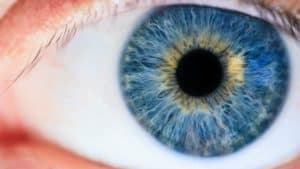Chronic kidney disease (CKD) is characterized by a steady and typically irreversible decline in kidney function over time. This generally occurs over a period of months to years.
With the lack of kidney function, water, waste, and harmful compounds that are normally expelled by the kidney accumulate in the body. In addition to causing anemia, high blood pressure, acidosis (excessive acidity of body fluids), abnormalities of cholesterol and fatty acids, and bone disease, the loss of kidney function is associated with a number of additional conditions.
Renal refers to the kidney, hence “renal failure” is another name for kidney failure. Mild kidney disease is frequently referred to as renal insufficiency.
Chronic kidney disease causes
The most common causes of chronic kidney failure are diabetes and high blood pressure.
Additional causes include:
- Impairment of renal function
- Chronic renal infections
- Inflammation of the filtration mechanism of your kidneys
- Congenital renal ailment
- Blockage of the urinary tract
- Autoimmune diseases
You are more likely to develop chronic kidney failure if you:
Who gets it?
- Chronic renal disease affects 14% of the American population.
- One-third of the 17,600 kidney transplants performed in the United States in 2013 were living donors.
- Hispanics, African-Americans, Asians or Pacific Islanders, and Native Americans are more susceptible to kidney disease.
- Chronic kidney disease is connected with older age, female gender, diabetes, hypertension, a higher body mass index (obesity), and cardiovascular disease.
Symptoms of CKD
In the early stages of kidney disease, symptoms are typically nonexistent. As the condition progresses, the following symptoms may appear:
- Urge to urinate more frequently
- Fatigue, weakness, and low energy
- Reduced appetite
- Swelling of the feet, hands, and ankles
- Problems breathing
- Blood in the pee and frothy urination
- Puffy eyes
- Chapped, itching skin
- Difficulty concentrating
- Trouble sleeping
- Numbness
- Nausea or nausea
- Muscle cramping
- Elevated blood pressure
- Darkening of your skin
Diagnosis
Commonly, two tests are recommended to screen for CKD.
- Glomerular filtration rate (GFR): a standard blood test that measures how efficiently your kidneys filter blood.
- Urine albumin: detects a protein that enters the urine when the kidneys are compromised.
In addition, serum creatinine is a blood test that measures the kidneys’ ability to filter waste from the blood.

CKD Stages
Stage 1
Stage 1 chronic kidney disease is characterized by a GFR of at least 90 milliliters per minute per 1.73 meters squared (m2). Normal kidney function, however there are signs of kidney disease. Signs of kidney disease in stage 1 CKD may include the presence of protein in the urine and physical damage.
Stage 2
GFR is between 60–89 ml/min per 1.73 m2 for a person with stage 2 CKD. A GFR within this range typically indicates that a person’s kidneys are functioning normally. This GFR suggests, however, that a person with stage 2 CKD has further symptoms of renal impairment. These symptoms may include renal damage and the presence of protein in the urine.
A person with stage 1 or 2 CKD might consult a physician about drugs that can aid with kidney protection.
Stage 3
At stage 3 of CKD, the GFR ranges from 30 to 59 ml/min per 1.73 m2. This range suggests that a person’s kidneys are damaged. In stage 3 CKD, the kidneys are not functioning as well as they should.
Stage 3 CKD can be divided into two subtypes:
- Stage 3a: A individual in stage 3a has a GFR between 45 and 59 ml/min per 1.73 m2.
- Stage 3b: A individual in stage 3b has a GFR between 30 and 44 ml/min per 1.73 m2.
Stage 4
By stage 4 of chronic kidney disease, a person’s GFR is 15–29 ml/min per 1.73 m2. The kidneys are moderately to severely impaired at this stage. Step 4 chronic renal disease is a dangerous condition and the final stage before kidney failure.
Stage 5
A stage 5 CKD patient has a GFR of 15 ml/min/1.73 m2 or less. At this point, a person’s kidneys have failed or are on the verge of failing.
Treatment
Chronic kidney disease (CKD) has no known cure, however treatment can alleviate symptoms and prevent progression.
Adaptations in way of life
The following lifestyle modifications are typically suggested for individuals with renal disease:
- Stop smoking if you smoke.
- Consume a healthy, well-balanced diet.
- Limit your daily salt intake to less than 6 grams, or around 1 teaspoon
- Engage in regular physical activity for at least 150 minutes every week.
- Limit your weekly alcohol consumption to no more than the suggested maximum of 14 units.
- Lose weight if you’re overweight or obese.
- If you have kidney illness, avoid over-the-counter nonsteroidal anti-inflammatory drugs (NSAIDS) like ibuprofen until directed to do so by a medical practitioner; these medications can injure your kidneys.
Medicine
There is no specific treatment for CKD, but medication can assist manage many of the problems that lead to the disease and the complications that can arise as a result.
You may need to take medication to treat or avoid the various complications of CKD.
Problems brought on by CKD:
- Elevated blood pressure
- Anemia
- Elevated cholesterol
- Water conservation
- Bone issues
- Glomerulonephritis
Treatment for end-stage renal illness
You have end-stage renal disease if your kidneys cannot keep up with waste and fluid clearance on their own and you develop complete or near-complete kidney failure. At that time, dialysis or a kidney transplant is required.
- Dialysis. Dialysis eliminates waste materials and excess fluid from the circulation when the kidneys are no longer able to do so. A machine filters blood to remove waste and surplus fluids during hemodialysis.
- During peritoneal dialysis, a tube is introduced into the abdomen and filled with a dialysis solution that absorbs waste and excess fluids. After a period of time, the dialysis solution drains out of your body, carrying with it the waste.
- Renal transplantation. A kidney transplant includes surgically implanting a healthy donor kidney into the recipient. Donors of transplanted kidneys might be either deceased or living. After an organ transplant, you will require lifelong medicine to prevent your body from rejecting the new organ. Kidney transplants can be performed without dialysis.
For those who prefer not to undergo dialysis or a kidney transplant, conservative treatment of renal failure is a third alternative. Typical conservative methods will include symptom control, advance care planning, and comfort care (palliative care).
Prevention
CKD cannot always be prevented. However, managing illnesses such as hypertension and diabetes can be beneficial. If your risk for CKD is high, you should undergo regular testing. Obtaining an early diagnosis of CKD can assist in retarding its progression.



